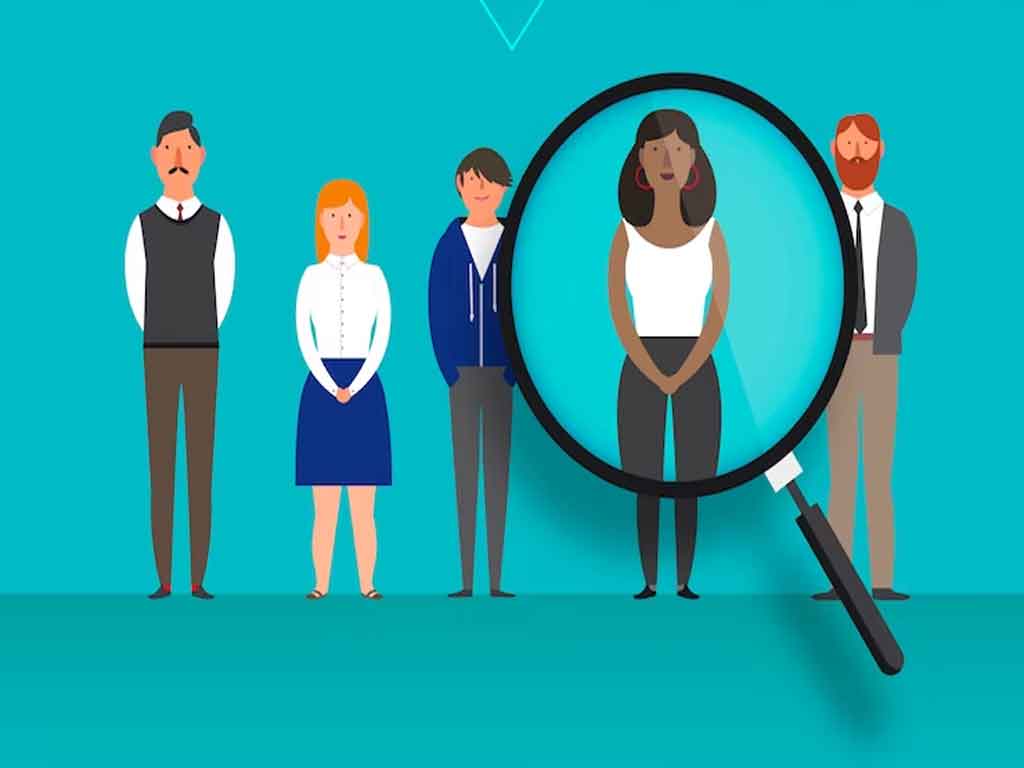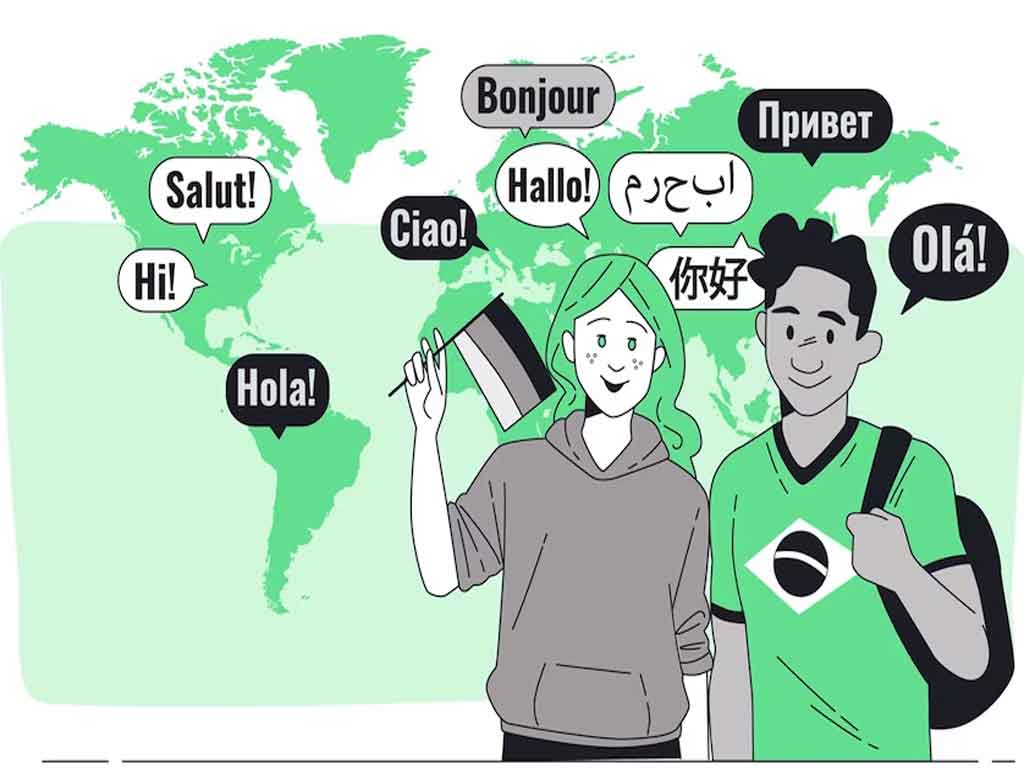
Social Media that gets you fired.....
We had mentioned last week that if LinkedIn is used well, jobs will come in search of us. Let's have a look at the exact opposite situation today. You need to know how the unwise usage of social media adversely affects, your chances of getting a job and retaining the job you already have. Those who are already in their workplace and those preparing to join an office should read this matter carefully.
The most dramatic example of how social media affects work is that of Justin Sacco, a communications director at an organization in New York. As someone who was not a star on social media, she had only 170 followers on Twitter. Solely because of a single inopportune tweet, not only her job but their lives were overturned.
In 2013, she was going on a vacation to South Africa. The route from New York to Cape Town was via London. She tweeted about the minor inconveniences she had encountered during the flight, before boarding the plane and landing in London. As there was no Wi-Fi on the plane at that time, nobody cared about the tweets. But before boarding her flight from London to Cape Town, she tweeted once again. The plane then took off, and Justin Sacco was on board for the next eleven hours.
Just below, at that time in the world of social media, Justin Sacco's tweet quickly went viral. Its racism had angered the public immensely. People showed up below Justin's institution and responded furiously with slogans and outcries. Massive tweeting took place declaring that people would not do business with the company as long as Justin worked there.
All this time, Justin is on the plane unaware of the happenings in the world of social media. The company came up with a tweet after realizing that its name was being tarnished and that the business was losing its customers,
'This is an outrageous, offensive comment. Employee in question currently unreachable on an intl flight.'
Things changed along with that. People realized that Justin was not aware of any of the events that followed. In such a case, what would her face be like when she lands and suddenly realize that she is the center of hatred on social media, became the thought and discussion from then on. So, the hashtag whether Justine landed (#HasJustineLandedYet) went viral.
Justin didn't know this either. By then, social media had already found out from where and to which place Justin was traveling. In Cape Town, people were waiting for her to land. They took a picture of her and posted it online too.
After she had landed in Cape Town, Justin understood what was going on. By then, there were thousands of messages on her Twitter feed and phone. Frightened, she immediately deleted the tweet, but by then it had spread like wildfire across the Twitter world with tens and thousands of retweets and comments. The staff of the hotel where she had booked to stay in South Africa, announced that they would go on a strike if she was permitted to stay there.
Even though Justin cancelled the vacation and returned, she did not get her job back.
Just one tweet! that too from someone with barely 170 followers. Now you know, this is what the world of social media is.
Social media plays a role not only in losing a job you already have but also in not getting a job. There was an incident in Texas in October last year. A girl named Emily Chloe applied for a job at a company. They, in turn, checked Emily's social media pages, which included a picture of Emily in a bikini inside a swimming pool. Not only did they refrain from giving Emily a job, but they also posted that sharing such pictures on social media is unprofessional.
'PSA (because I know some of you applicants are looking at this): do not share your social media with a potential employer if this is the kind of content on it. I am looking for a professional marketer - not a bikini model.'
This time, the company was rebuked. As thousands of people began to post in protest of the company's actions, they fled the scene after going private on their accounts and websites. It is also worth noting that Emily did not get the job, after all.
There is much to learn from these two events. We showcase our thoughts and abilities on many online platforms such as Twitter, Facebook, YouTube, Instagram, and Tik-Tok. Also, comment opinions on others' posts. You might be thinking that this is a private matter. But it is for sure that your current and future employers are paying attention to your social media thoughts and shares. This situation is going to increase shortly. Nobody can predict what and when something might change into a pitfall for you. It does not matter whether your page is private, you write only in Malayalam, or if you have hardly ten followers.
What usually turns out to be problems?
- Politics: There are people on social media who are biased and support various political ideologies. This can naturally be reflected in the profile of individuals. It's solely a personal matter. But profiles that reflect harsh political polarization can turn into peril for you. Extreme comments of that sort should be avoided.
- Language: It is also dangerous to use vulgar language in the name of expression. Comments and posts that abuse others, even if they are funny, can seriously affect your career. Don't be too confident that foreign employers won't be able to read and understand your posts in Malayalam. Realize that language translation is not a problem in the age of artificial intelligence. Also, when translating using artificial intelligence, it can even mean something that you haven't ever thought of, mind you.
- Gender discrimination is considered to be undignified in a developed society. This is something that is often discussed on social media. Many of the expressions in our country, and what we mean by a joke, might be unacceptable elsewhere.
- Homophobia: This indicates an unpleasant attitude towards homosexuals. Expressing dislike or prejudice towards them on social media proves that you are a homophobic person. This can degrade the employer's opinion of you.
- Religion: Intense commentary on religions can lead to problems. Believers generally think their religion is right, and some even proclaim that theirs' is the only true one. Non-religious people consider it all incorrect. In Kerala, we generally think of all this as individual freedom. But that does not have to be the case everywhere in the world. In Kerala itself, some employers covertly think that religion is important, and some stay away from disagreements concerning religion. For job security, it is better to keep our religious beliefs and opinions about other religions private.
- Racism: Racism or hatred of people of another race/colour is the belief that one's race is superior, and the treatment of another race, with prejudice and discrimination. Both are seen by the modern world as despicable. There are many offensive comments and posts on social media about people from different countries and nationalities. If you've shared this, then of course your future employer may notice it. It is hence proven that you are a racist and that you have no political correctness.
- International Politics: In international politics (like India, Pakistan, America-China, Iran-Saudi Arabia, Israel-Palestine) you may have had clear and strong views. You might be used to sitting under the comfortable shadow of democratic Kerala and saying it out loud on social media, for which you may also have got a lot of likes and shares. But if you are looking for a job internationally or doing an international job, all of this can backfire on you at any given point. Even when you have comments, express them moderately.
- When it comes to the sovereigns: It is not unusual for us to criticize rulers while we grow up in a democratic environment. But in many parts of the world, it is still a crime to criticize their monarchs. For example, criticizing the King, Queen and Crown Prince of Thailand is punishable by up to three to fifteen years in prison. There have even been incidents of people from other countries being arrested once they arrived in Thailand for criticizing the royals on social media. Those who are employed and those who seek employment be very careful.
- Responsibility of sharing: Even those who do not comment on their own sometimes share comments, cartoons, and newspaper articles of others. The principle on social media is that if you share something, you agree with its comments. Some people try to avoid responsibility by saying 'as received'. It does not matter.
- You are what you like: It's natural to like other people's posts, even if you do not comment or share. Often you might have liked a post without reading the whole thing to understand or accept it. But the science on social media is that your likes define your personality. So be careful what you like.
- WhatsApp is not private: We say a lot of things in WhatsApp groups that we are reluctant to say in public. The impression is that it is kept private. But not so in reality. If you use abusive language or make and share the kind of annoying comments mentioned earlier, a screenshot may come out at any time and get you into serious trouble.
- There are no safe places: One lesson that the corona era teaches us is that the whole world is interconnected. The same is true of social media. If we sit somewhere in the world and think that it is safe to make a comment that is politically correct in our particular system, we may not be able to imagine where it will end up or how it will be thrown back at us as a menace. Therefore, those who want to travel or work internationally should pay close attention to the choice of subject and language on social media.
- You can't hide: Some use fake IDs to express their opinions, think that others do not understand what they are saying in their language, and believe that posting is private and that deleting a post will solve all the problems. None of this is true. Anything you write on social media will be right there as a digital footprint carved on stone. This will come back to bite you at any time. Be careful!
- Excess decency is a problem too: Your employer may notice not only what you write, but also when you write and how much you write (like, comment, post, share). So even if you find that you are someone who makes unproblematic comments unlike those mentioned earlier, but spends a lot of time on social media during office hours, you may still be at risk, mind you.
- When artificial intelligence seeks you out: In the future, evaluation and profiling of every worker and job seeker will be conducted by artificial intelligence, not humans. Your Facebook profile won't be skimmed as a whole - your profiling is going to be done after analyzing everything; all the postings, likes, and shares from the day you joined to the present will be examined, analyzing how much time you spend there and even who your friends are. This type of profiling will also be available in the workplace and even new companies will be formed solely for this purpose. Social media companies will sell their data that you believed was private, including those you deleted, to these new companies. We cannot predict by what criteria artificial intelligence may profile us as good. For example, a theory is emerging that those who share more selfies on social media are less intelligent. This may not be true, but it may take some principles like these to exclude people, to pick a few out of millions of job seekers, and this in turn will become an obstacle for us.
- But what if we avoid this?: If social media is such a nuisance, is it wise to ignore it while looking for a job? Certainly not. If you go to an interview and say that you do not have a social media account, employers will assume that you are not living in the 21st century and that you are an idiot with no comments of your own. So, accounts on social media (not just LinkedIn) are a must.
There is something you need to do today. Do a Google search of your name in English and Malayalam. See what comes up in the first two pages. This is what anyone likely to interview you for a job in the future is going to do. If there's something wrong with these pages, or the images they bring out, it's a good idea to start getting a little bit scared. Because the journey into the internet is not as smooth as getting back without injuries.
So, what is being said is this. There are no two categories of social media, private and professional. It is sensible to act professionally everywhere. This does not mean that you have to hide your identity on social media, but understand that your identity can be seen through social media and that you cannot just hide it with a professional biodata.






